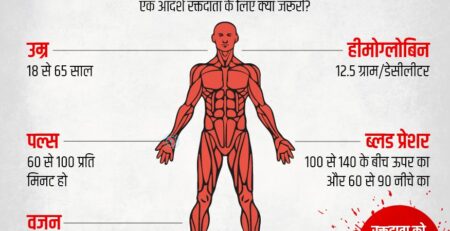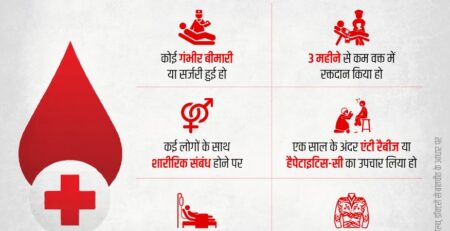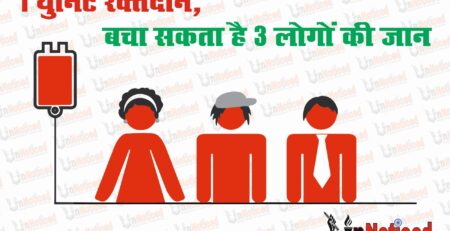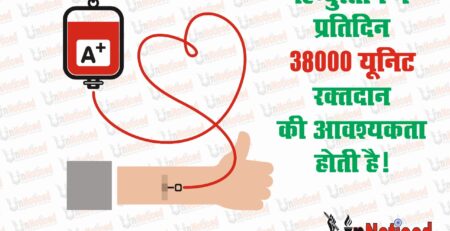Fundamental Rights
Fundamental Rights (Part-1)
Introduction
- About:
- The Fundamental Rights are enshrined in Part III of the Constitution (Articles 12-35).
- Part III of the Constitution is described as theMagna Carta of India.
- ‘Magna Carta’, the Charter of Rights issued by King John of England in 1215 was the first written document relating to the Fundamental Rights of citizens.
- The Fundamental Rights:The Constitution of India provides for six Fundamental Rights:
- Right to equality (Articles 14–18)
- Right to freedom (Articles 19–22)
- Right against exploitation (Articles 23–24)
- Right to freedom of religion (Articles 25–28)
- Cultural and educational rights (Articles 29–30)
- Right to constitutional remedies (Article 32)
- Originally the constitution also included Right to property (Article 31).However, it was deleted from the list of Fundamental Rights by the 44th Amendment Act, 1978.
- It is made a legal right under Article 300-A in Part XII of the Constitution.
- Provision for Laws Violating Fundamental Rights: Article 13of the Indian constitution declares that all laws that are inconsistent with or in derogation of any of the fundamental rights shall be void.
- This power has been conferred on the Supreme Court (Article 32)and the high courts (Article 226).
- Further, the article declares that a constitutional amendment cannot be challenged (as it is not a law).
- However, the Supreme Court in theKesavananda Bharati case (1973) held that a Constitutional amendment can be challenged if it violates basic structure including Fundamental right.
- Writ Jurisdiction:A writ is a legal order given by a court of law.
- The Supreme Court (Article 32) and the High courts (Article 226) can issue the writs of habeas corpus, mandamus, prohibition, certiorari and quo-warranto.
Features of the Fundamental Rights:
- Protected by Constitution:Fundamental Rights, unlike ordinary legal rights, are protected and guaranteed by the constitution of the country.
- Some of the rights are available only to the citizens while others are available to all persons whether citizens, foreigners or legal persons like corporations or companies.
- Not Sacrosanct, Permanent, or Absolute:They are not sacrosanct or permanent and the Parliament can curtail or repeal them but only by a constitutional amendment act.
- The rights are not absolute but qualified.
- The state can impose reasonable restrictions on them, however, the reasonability of the restrictions is decided by the courts.
- Rights are Justiciable:The rights are justiciable and allow persons to move the courts for their enforcement, if and when they are violated.
- Any aggrieved person can directly go to the Supreme Court in case of violation of any fundamental right.
- Suspension of Rights:The rights can be suspended during the operation of a National Emergency except the rights guaranteed by Articles 20 and 21.
- Further, the six rights guaranteed by Article 19 can be suspended only when there is an external emergency war or external aggression) [and not on the ground of armed rebellion (i.e., internal emergency].
- Restriction of Laws:Their application to the members of armed forces, paramilitary forces, police forces, intelligence agencies and analogous services can be restricted or abrogated by the Parliament (Article 33).
- Their application can be restricted while martial law (military rule imposed under abnormal circumstances) is in force in any area.
- The rights are not absolute but qualified.
| Fundamental Rights (available to citizens as well foreigners) (except enemy aliens) | Fundamental Rights available to citizens only |
| Equality before law. | Prohibition of discrimination on grounds of religion, race, caste, sex or place of birth |
| Protection in respect of conviction for offences. | Equality of opportunity in matters of public employment. |
| Protection of personal life and liberty. | Protection of the six fundamental rights of freedom mentioned in article 19. |
| Right to elementary education. | Protection of language, script and culture of minorities. |
| Protection against arrest and detention in certain cases. | Right of minorities to establish and administer educational institutions |
| Prohibition of human trafficking and forced labour. | |
| Prohibition of employment of children in factories. | |
| Freedom of conscience and free profession, practice and propagation of religion. | |
| Freedom to manage religious affairs. | |
| Freedom from payment of taxes for promotion of any religion. | |
| Freedom from attending religious instruction or worship in certain educational institutions. |
Right to Equality (Article 14, 15, 16, 17 and 18):
- Equality Before Law: Article 14says that no person shall be denied treatment of equality before the law or the equal protection of the laws within the territory of India.
- The right is extended to all persons whether citizens or foreigners, statutory corporations, companies, registered societies or any other type of legal person.
- Exceptions:As per article 361, the President of India or Governor of states is not answerable to any court for the exercise of their powers/duties and no civil or criminal proceedings can occur or continue against them in any court during their term of office.
- As per article 361-A, no civil or court proceedings can occur for a person for publishing any substantially true report of either House of the Parliament and State Legislature.
- No member of Parliament (article 105) and State Legislature (article 194) shall be liable to any court proceedings in respect of anything said or any vote given by him in Parliament or any committee.
- The foreign sovereigns (rulers), ambassadors and diplomats enjoy immunity from criminal and civil proceedings.
- Prohibition of Discrimination: Article 15provides that no citizen shall be discriminated on grounds only of religion, race, caste, sex or place of birth.
- Exception:Certain provisions can be made for the women, children, citizens from any socially or educationally backward class for their upliftment (such as reservation and access to free education).
- Equality of Opportunity in Public Employment: Article 16of the Indian constitution provides for equality of opportunity for all citizens in matters of employment or appointment to any public office.
- Exceptions:There are provisions for reservation in appointments or posts for any backward class that is not adequately represented in the state services.
- Also, an incumbent of a religious or denominational institution may belong to the particular religion or denomination.
- Abolition of Untouchability: Article 17abolishes ‘untouchability’ and forbids its practice in any form. The enforcement of any disability arising out of untouchability shall be an offence punishable in accordance with law.
- A person convicted of the offence of ‘untouchability’ is disqualified for election to the Parliament or state legislature. The acts of offences include:
- Preaching untouchability directly or indirectly.
- Preventing any person from entering any shop, hotel, public place of worship and place of public entertainment.
- Refusing to admit persons in hospitals, educational institutions or hostels established for public benefit.
- Justifying untouchability on traditional, religious, philosophical or other grounds.
- Insulting a person belonging to scheduled caste on the ground of untouchability.
- Abolition of Titles: Article 18of the constitution of India abolishes titles and makes four provisions in that regard:
- It prohibits the state from conferring any title on any citizen or a foreigner (except a military or academic distinction).
- It prohibits a citizen of India from accepting any title from any foreign state.
- A foreigner holding any office of profit or trust under the state cannot accept any title from any foreign state without the consent of the President of India.
- No citizen or foreigner holding any office of profit or trust within the territory of India can accept any present, emolument or office from or under any foreign State without the consent of the president.
- A person convicted of the offence of ‘untouchability’ is disqualified for election to the Parliament or state legislature. The acts of offences include:
- Exceptions:There are provisions for reservation in appointments or posts for any backward class that is not adequately represented in the state services.
Right to Freedom (Article 19, 20, 21 and 22):
- Protection of 6 Rights: Article 19guarantees to all citizens the six rights of freedom including:
- Right to freedom of speech and expression.
- Expressing one’s own views, opinions, belief and convictions freely by word of mouth, writing, printing, picturing or in any other manner.
- Right to assemble peaceably and without arms.
- Includes the right to hold public meetings, demonstrations and take out processions which can be exercised only on public land.
- It does not protect violent, disorderly and riotous assemblies or strike.
- Right to form associations or unions or co-operative societies.
- It includes the right to form (and not to form) political parties, companies, partnership firms, societies, clubs, organisations, trade unions or any body of persons.
- Right to move freely throughout the territory of India.
- The freedom of movement has two dimensions, viz, internal (right to move inside the country) (article 19) and external (right to move out of the country and right to come back to the country) (article 21).
- Right to reside and settle in any part of the territory of India.
- The right of outsiders to reside and settle in tribal areas is restricted to protect the distinctive culture and customs of scheduled tribes and to safeguard their traditional vocation and properties against exploitation.
- Right to practice any profession or to carry on any occupation, trade or business.
- It doesn’t include the right to carry on a profession that is immoral (trafficking in women or children) or dangerous (harmful drugs or explosives, etc,).
- Protection in Respect of Conviction for Offences: Article 20grants protection against arbitrary and excessive punishment to an accused person, whether citizen or foreigner or legal person like a company or a corporation. It provides that:
- No person shall be convicted of any offence except for violation of a law in force at the time of the commission of the act or subjected to a penalty greater than that prescribed by the law.
- No person shall be prosecuted and punished for the same offence more than once.
- No person accused of any offence shall be compelled to be a witness against himself.
- Protection of Life and Personal Liberty: Article 21declares that no person shall be deprived of his life or personal liberty except according to procedure established by law. This right is available to both citizens and non-citizens.
- The right to life is not merely confined to animal existence or survival but also includes the right to live with human dignity and all those aspects of life which go to make a man’s life meaningful, complete and worth living.
- Right to Education:Article 21 (A) declares that the State shall provide free and compulsory education to all children of the age of six to fourteen years.
- This provision makes only elementary education a Fundamental Right and not higher or professional education.
- This provision was added by the 86thConstitutional Amendment Act of 2002.
- Before the 86thamendment, the Constitution contained a provision for free and compulsory education for children under Article 45 in Part IV of the constitution.
- Protection Against Arrest and Detention:Article 22 grants protection to persons who are arrested or detained.
- Detention is of two types, namely, punitive(punishment after trial and conviction) and preventive (punishment without trial and conviction).
- The first part of Article 22 deals with the ordinary law and includes:
- Right to be informed of the grounds of arrest.
- Right to consult and be defended by a legal practitioner.
- Right to be produced before a magistrate within 24 hours, excluding the journey time.
- Right to be released after 24 hours unless the magistrate authorises further detention.
- The second part of Article 22 deals with preventive detention law. Protection under this article is available to both citizens as well as aliens and includes the following:
- The detention of a person cannot exceed three monthsunless an advisory board (judges of high court) reports sufficient cause for extended detention.
- The grounds of detention should be communicated to the detenu.
- The detenu should be afforded an opportunity to make a representation against the detention order.
- Right to freedom of speech and expression.
Fundamental Rights (Part-2)
Right Against Exploitation (Article 23 and 24)
- Prohibition of Human Trafficking and Forced Labour: Forced labour in Indiawas imposed by landlords, moneylenders and other wealthy persons in the past.
- The Article 23of the Indian Constitution prohibits human trafficking and begar (forced labour without payment) to protect the millions of underprivileged and deprived people of the country.
- The right is available tocitizens of India as well as to non-citizens.
- The right provides against human trafficking in the form of:
- Selling and buying of men, women and children.
- Prostitution
- Devadasis
- The Immoral Traffic (Prevention) Act 13, 1956has been enacted to deal with violations of this fundamental right.
- Prohibition of Child Labour: Article 24of the Indian Constitution forbids employment of children below the age of 14 years in dangerous jobs like factories and mines.
- However, it did not prohibit their employment in any harmless or innocent work.
- The Child Labour (Prohibition and Regulation) Act, 1986(renamed as Child & Adolescent Labour (Prohibition and Regulation) Act, 1986 in 2016) specifically deals with the violations of related to this right.
- The 2016 amendmentof this act completely prohibited employment or of children below 14 years of age in all occupations and processes.
- It also prohibited the employment of adolescents (14-18 years of age) in hazardous occupations or processes.
Right to Freedom of Religion (Article 25-28)
- Freedom of Conscience, Profession, Practice and Propagation: Article 25of the Constitution of India provides the freedom of conscience, to profess, to practice and to propagate any religion. These rights are available to citizens as well as non-citizens.
- Conscience:A person may or may not choose to follow any religion.
- Right to Profess:One can declare his/her religious beliefs and faith openly and freely.
- Right to Practice:Performance of religious worship, rituals, ceremonies and exhibition of beliefs and ideas.
- Right to Propagate:Persuading people to convert from one religion to another. However, the Constitution does not allow forcible conversions.
- It only gives us the right to spread information about our religion and thus attract others to it.
- Limitations:The government can impose restrictions on the practice of freedom of religion in order to protect public order, morality and health.
- The government can interfere in religious matters for rooting out certain social evils. For example: banning practices like sati, bigamy or human sacrifice.
- Such restrictions cannot be opposed in the name of interference in the right to freedom of religion.
- Freedom to Manage Religious Affairs:The Article 26 of the Indian Constitution provides every religious denomination (or any section of it) the right to establish and maintain institutions for religious and charitable purposes.
- It also empowers the religious denominations to manage their own affairs in matters of religion.
- Moreover, the right to own and acquire movable and immovable property and the right to administer such property is also provided to every religious denomination.
- The rights provided under Article 26 are also subjected to public order, morality and health.
- Freedom from Taxation for Promotion of a Religion:The Indian Constitution under Article 27 lays down that no person shall be compelled to pay any taxes for the promotion or maintenance of any particular religion or religious denomination.
- It says that no public money, collected through taxes, shall be spent for the promotion or maintenance of any particular religion.
- Favouring, patronising or supporting any religion over the other is prohibited.
- It prohibits only levy of a tax and not a fee.
- The purpose of a fee is to control secular administration of religious institutions and not to promote or maintain religion.
- Freedom from Attending Religious Instruction: Article 28states that no religious instruction shall be provided in any educational institution wholly maintained out of State (the territory of India) funds.
- However, the provision is not applicable to educational institutions administered by the State or established under any endowment or trust.
- Moreover, no person is required to attend any religious instructions or worship without his consent in any educational institution recognised by the State or receiving aid out of State funds.
- In case of a minor, the consent of his guardian is needed.
- It says that no public money, collected through taxes, shall be spent for the promotion or maintenance of any particular religion.
- The government can interfere in religious matters for rooting out certain social evils. For example: banning practices like sati, bigamy or human sacrifice.
Cultural and Educational Rights (Article 29 and 30)
- Protection of Interests of Minorities: Article 29provides that every section of citizens residing in any part of the country have the right to protect and conserve its own distinct language, script or culture (it provides the right to a group/section/community of people).
- Further, it says that no citizen shall be denied admission into any educational institution on grounds only of religion, race, caste, or language(it provides the rights to an individual citizen).
- Article 29 grants protection to both religious, linguistic as well as cultural minorities.
- However, the rights are not necessarily restricted to minorities only,as it is commonly assumed to be. It includes minorities as well as the majority.
- Right of Minorities to Establish and Administer Educational Institutions: Article 30grants all the minorities the following rights:
- The right to establish and administer educational institutions of their choice.
- The compensation amount fixed by the State for the compulsory acquisition of any property of a minority educational institution shall not restrict or abrogate the right guaranteed to them.
- This provision was added by the 44thAmendment Act, 1978 to protect the right of minorities in this regard.
- The State shall not discriminate against any educational institution managed by a minority.
- Thus, the protection under Article 30 is confined only to minorities (religious, cultural or linguistic) and does not extend to any other section of citizens (as under Article 29).
Article 31, 31A, 31B and 31C
- Originally, the right to property was one of the seven fundamental rightsand provided that no person shall be deprived of his property except by authority of law.
- However, being one the most controversial rights, the44th Amendment Act of 1978 abolished the right to property as a Fundamental Right and made it a legal right (constitutional right) under Article 300A in Part XII of the Constitution.
- Article 31 led to a number of Constitutional amendments; 1st, 4th, 7th, 25th, 39th, 40thand 42nd
- The First Amendment Act, 1951inserted Articles 31A and 31B to the Constitution.
- Article 31C was inserted in the Constitution by 25thAmendment Act, 1971.
- Article 31A:It saves five categories of laws from being challenged and invalidated on the ground of contravention of the fundamental rights conferred by Article 14 and Article 19.
- It includes:
- Acquisition of estates and related rights by the State;
- Taking over the management of properties by the State;
- Amalgamation of corporations;
- Extinguishment or modification of rights of directors or shareholders of corporations
- Extinguishment or modification of mining leases.
- It also provides the guaranteed right to compensation in case of acquisition or requisition of the private property by the state.
- It includes:
- Article 31B:It protects the acts and regulations included in the Ninth Schedule from being challenged and invalidated on the ground of contravention of any of the fundamental rights.
- Thescope of Article 31B is wider than Article 31A as it immunises any law included in the Ninth Schedule from the Fundamental Rights (unlike article 31A that protects only five categories).
- However, the Supreme Court in its judgement in theR. Coelho case (2007)ruled that even laws under the Ninth Schedule would be open to scrutiny if they violated Fundamental Rights or the basic structure of the Constitution.
- The Supreme Court first propounded the doctrine of ‘basic structure’ of the constitution in the Kesavananda Bharati on April 24, 1973.
- Article 31C:It contained two provisions:
- It says that no law that seeks to implement socialistic directive principles specified in Articles 39 (b) and (c), shall be declared voidon the grounds of contravention of the fundamental rights conferred by Article 14 or Article 19.
- Moreover, no law containing a declaration that it is for giving effect to such policy shall be questioned in any court on the ground that it does not give effect to such a policy.
- The First Amendment Act, 1951inserted Articles 31A and 31B to the Constitution.
Articles 31A, 31B and 31C have been retained as exceptions to the fundamental rights.
Right to Constitutional Remedies (Article 32)
- Article 32is considered the most important article of the Constitution as it provides that the right to get Fundamental Rights protected is itself a fundamental right.
- It confers theright to remedies for the enforcement of the fundamental rights of an aggrieved citizen.
- The Supreme Court has ruled that Article 32 is a basic feature of the Constitution. Hence, itcannot be abridged or taken away even by way of an amendment to the Constitution.
- It contains the following four provisions:
- The right to move the Supreme Court by appropriate proceedings for the enforcement of the Fundamental Rights.
- The Supreme Court shall have power to issue directions or orders or writsfor the enforcement of any of the fundamental rights.
- Parliament can empower any other court to issue directions, orders and writs of all kinds.
- Any other court here does not include high courts because (Article 226)has already conferred these powers on the high courts.
- The right to move the Supreme Court shall not be suspended except as otherwise provided for by the Constitution.
- In the case of national emergency, the right can be suspended by the President (Article 359).
- Only the Fundamental Rights guaranteed by the Constitution can be enforced under Article 32 and not any other right like non-fundamental constitutional rights, statutory rights, customary rights etc.
- The violation of a fundamental right is the sine qua non(absolutely necessary condition) for the exercise of the right conferred by Article 32.
Article 33, 34 and 35
- Article 33:It empowers the Parliament to restrict or abrogate the fundamental rights of the ‘Members of the Armed Forces’, paramilitary forces, police forces, intelligence agencies and analogous forces.
- The objective of this provision is to ensure the proper discharge of their dutiesand the maintenance of discipline among them.
- The power to make laws under Article 33 is conferred only on Parliamentand not on state legislatures.
- Any such law made by Parliament cannot be challenged in any court on the ground of contravention of any of the fundamental rights.
- The ‘members of the armed forces’ also covers non-combatant employees of the armed forces such as barbers, carpenters, mechanics, cooks, chowkidars, bootmakers and tailors.
- Article 34:It provides for the restrictions on fundamental rights while martial law is in force in any area within the territory of India. The expression ‘martial law’ has not been defined anywhere in the Constitution but literally, it means ‘military rule’.
- The martial law is imposed under extraordinary circumstanceslike war, invasion, insurrection, rebellion, riot or any violent resistance to law.
- Article 34 empowers the Parliament to indemnify (compensate) any government servantor any other person for any act done by him in connection with the maintenance or restoration of order in any area where martial law was in force.
- The Act of Indemnity made by the Parliament cannot be challenged in any court on the ground of contravention of any of the fundamental rights.
- Article 35:Article 35 lays down that the power to make laws, to give effect to certain specified fundamental rights shall vest only in the Parliament and not in the state legislatures.
- Powers of Parliament (only) to Make Laws:
- Prescribing residence as a condition for certain employment or appointments in a state/UT/local or any other authority.
- Empowering courts other than the Supreme Court and the high courts to issue directions, orders and writs for the enforcement of fundamental rights.
- Restricting or abrogating the application of Fundamental Rights to members of armed forces, police forces, etc.
- Indemnifying any government servant or any other person for any act done during the operation of martial law in any area.
- The Parliament has powers to make laws prescribing punishment for offences such as untouchability and traffic in human beings and forced labour.
- Article 35 extends the competence of the Parliament to make a law on the specified matters even those matters which may fall within the sphere of the state legislatures (i.e., State List).
- Powers of Parliament (only) to Make Laws:
Conclusion
- The Fundamental Rights, despite having a lot of exceptions & restrictions and lack of permanency, are a crucial part of the Constitution of India as:
- They provide necessary conditions for the material and moral protection of man and ensure the liberty of every individual.
- These rights protect the interests of minorities and weaker sections of society and also strengthen the notion of India as a secular State.
- They ensure the dignity and respect of individuals by laying down the foundation of social equality and justice.











